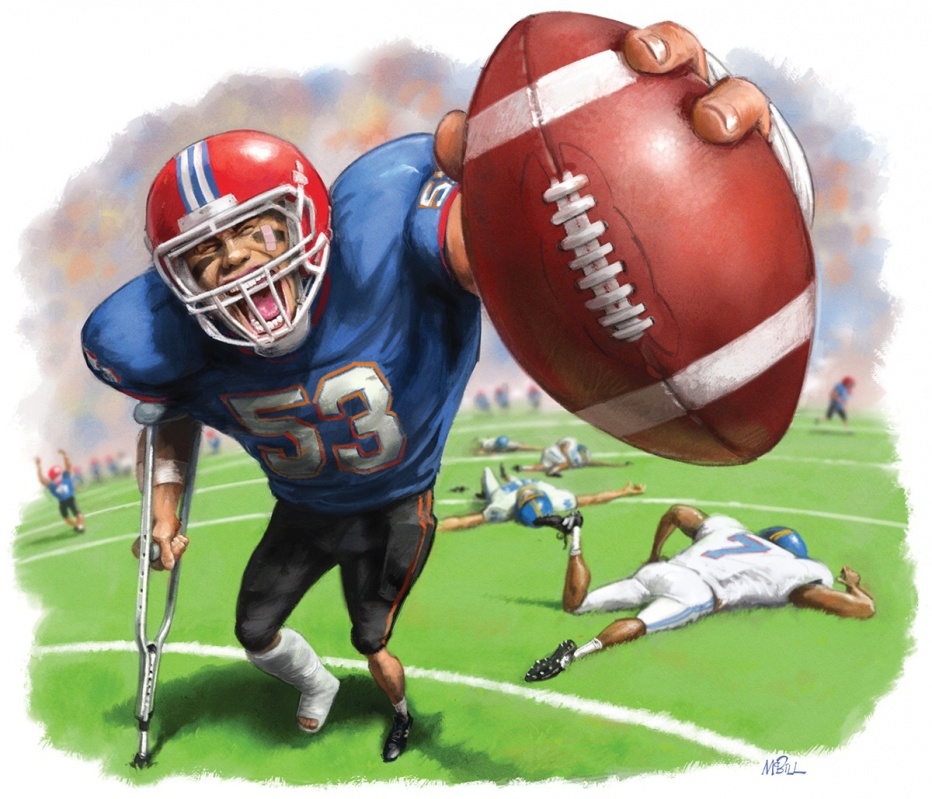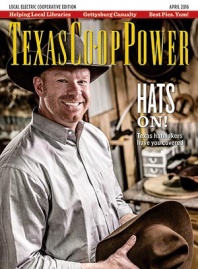My boyhood pal Ricky was either an accident waiting to happen or a pretty fair country football player, depending on whether he was injuring himself or someone else. His aggression made him what the coaches liked to call a “headhunter,” but he also became something of a fall guy.
Like a lot of us back then, Ricky and I grew up watching the Dallas Cowboys long before they were “America’s Team.” With stiff competition from the Dallas Texans of the American Football League, there was some doubt in the ’60s as to whether the Cowboys were even Dallas’ team.
We watched anxiously each Sunday to see if quarterback Don Meredith would be knocked unconscious before he could loft a deep ball to Robert Lee “Bullet Bob” Hayes, or if Cowboys linebacker Lee Roy Jordan would knock the stuffing out of an opposing running back, putting him out of the game and giving Dallas a chance for one of its few victories that season.
Jordan was Ricky’s hero from the start. “I want to hit people,” Ricky said. “I want them to wake up the next morning in pain and remember me.”
That wasn’t hard for me to believe. The first words Ricky said to me when we moved into a northeast Lubbock neighborhood were, “You wanna fight?”
So we fought. Instead of declaring a winner, each of us declared the other to be our best friend. Neighbors advised my parents to keep me away from Ricky. He was a bully, they said, and something of a troublemaker in school.
When the time came to “suit up” for seventh-grade football, Ricky appeared to be a natural. He had enjoyed a bit of a growth spurt and was nothing if not aggressive. The qualities that made him such a liability in the neighborhood and the classroom endeared him to the coaches.
But Ricky’s road to gridiron glory would be full of detours. A week before workouts began, Ricky took it upon himself to climb a tree outside the local skating rink to impress an older girl of 16. He happened to be wearing roller skates at the time, which doctors and parents said caused his fall from the tree and the breaking of his two favorite arms. So much for that season.
The next summer, Ricky was working in his father’s woodshop when a girl walking down the street in a miniskirt caught his eye. His attention wavered and the next thing anybody knew, he had sawed off two of his favorite fingers.
Some time later, we were in his garage when Ricky used two of his remaining fingers to grab some doughnuts that he found on top of the washing machine. I took one too but threw it away when I found a dead ant curled up in the icing.
“Hmmm,” Ricky said, helping himself to a third one. “That’s weird.”
A few minutes later his mother came home from the store and broke the bad news: She had laced those doughnuts
with ant poison. “You’ve killed me!” Ricky wailed, but yet another trip to the emergency room, this time to have doctors pump his stomach, put him back in the ball game.
Eventually, the coaches were glad to get Ricky back, swaggering around the practice field without a splint, cast or sling of any kind, but Ricky had fought his battle with the world at an early age and didn’t care as much as he once had for knocking his peers into next week. Frustrated coaches yelled at him, which inspired Ricky not at all.
When he fell off a skateboard and broke two more fingers, keeping him out of contact drills for an entire week, Ricky came up with a plan. He unveiled it to me following a particularly grueling practice.
“Here’s the deal. I’m accident-prone, right?”
“’Maybe a little,” I allowed.
“All I have to do is get hurt. The guys who get hurt don’t have to work out. They just sit on the sidelines or go see the trainer, and that’s it. How hard can it be to get hurt playing football?”
While most of us aspired to be a first-string player, Ricky’s fondest desire was to go on the injured reserve list.
Ricky set out to do just that. The results were truly startling. He threw himself into workouts with such reckless abandon that he finally came to resemble the headhunting linebacker he had fancied himself when we were younger.
Results were mixed. While trying to hurt himself, he hurt a lot of other people, mostly his teammates. He became a starting linebacker and struck terror into the hearts of opposing teams. Even the high number of unnecessary roughness and personal foul calls were not enough to offset the damage he did to the psyche and bodies of our opponents. People took notice of him for the first time.
The same neighbors and friends who warned us about Ricky now sang his praises. “That boy’s a natural,” they said. “A real headhunter, that one.”
Ricky’s call to gridiron glory came to an abrupt end halfway through the season. One of his favorite knees got twisted during a pileup, and the doctors said it would be best if he took the rest of the season off.
While convalescing, Ricky discovered the electric guitar. He also discovered that girls liked guitar players as much or even more than they liked football players—not that it was easy to play the instrument with two missing fingers.
“The thing is, I don’t have to get my brains beat out every day just to meet chicks,” he told me. “I just have to strum a few chords.”
And that was pretty much the story of Ricky’s football career.
As a postscript, it should be noted that Ricky, the man who worked hard to be a football casualty and who was the most accident-prone person in the history of Lubbock County, grew up to be a construction worker.
On nuclear power plants.
——————–
Clay Coppedge, a member of Bartlett EC, lives near Walburg.


